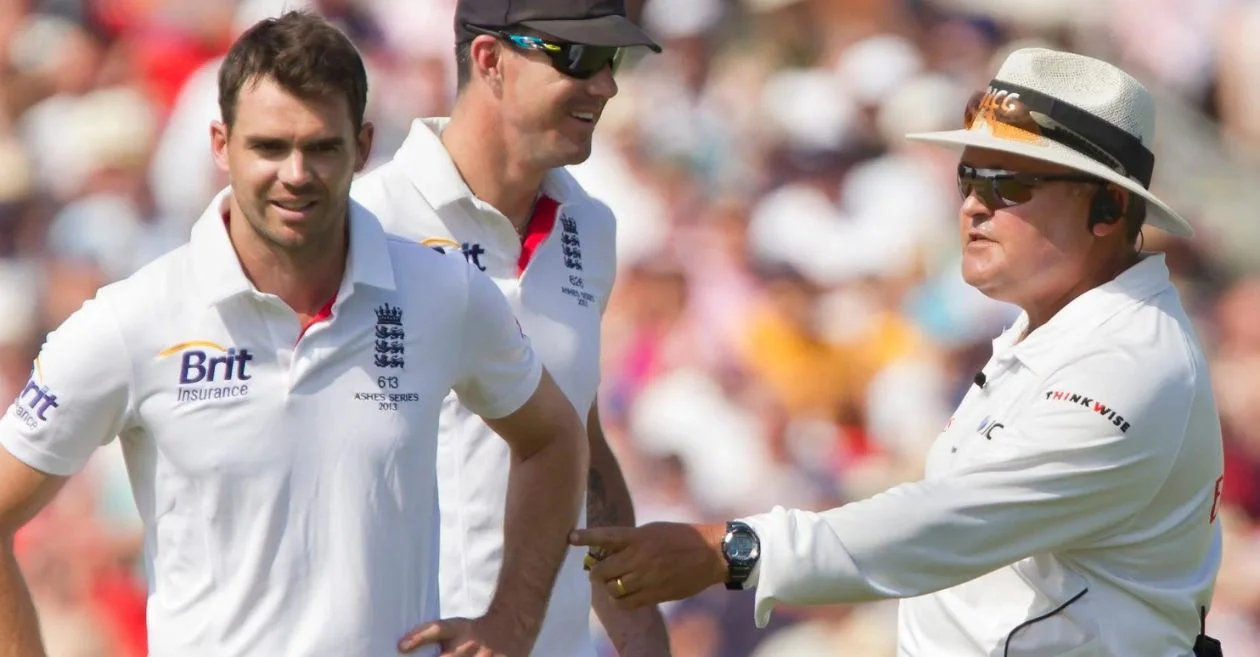Table of Contents
Marais Erasmus, a distinguished figure in international umpiring, recently bid farewell to his role after overseeing the second and final Test between New Zealand and Australia in Christchurch last March. Erasmus began his umpiring career back in 2006, officiating an impressive total of 380 matches.
Marais Erasmus: A distinguished career in umpiring
Erasmus was elevated to the Elite Panel of ICC umpires in 2010, sharing the honor of being the joint-longest serving current umpire with Rod Tucker. Throughout his remarkable career, the 60-year-old received several accolades, including the prestigious David Shepherd Trophy for ICC Umpire of the Year in 2016, 2017 and 2021. He also had the privilege of officiating in four ICC Men’s Cricket World Cups held in 2011, 2015, 2019 and 2023.
Managing challenges: Dealing with James Anderson
In a recent interview with Telegraph, Erasmus provided insights into his experiences umpiring some of cricket’s most iconic figures. He revealed that England’s veteran pace duo, James Anderson and to a certain extent, Stuart Broad, posed significant challenges for umpires. Reflecting on Anderson, Erasmus expressed gratitude that he was never appointed captain. According to Erasmus, Anderson was challenging to manage, as he preferred direct communication and avoided attempting to sway him with persuasion.
“Thank god Jimmy (Anderson) was never captain but no, no Jimmy was hard work. You knew that he was not a character that you should, you know, try and sweet talk or whatever. I normally just gave him quite abrupt, short answers,” Erasmus said.
Also READ: India’s Ravichandran Ashwin reveals the core issue with England in Test cricket
Particularly regarding issues like running on the wicket, Erasmus emphasized Anderson’s tendency to engage in endless debates. He preferred to assert his authority firmly, advising Anderson to comply with warnings regarding the issue without engaging in further discussion. Erasmus also noted that Broad posed similar challenges, attributing their fiery demeanor to their roles as fast bowlers.
“Because if you got into a debate with him it was going to be never-ending, especially when you spoke to Jimmy about the running on the wicket. He would argue it. I just said ‘you’re on the danger zone, try and get off. If you don’t I will give you a warning. It is not going to be a debate.’ Stuart Broad was challenging as well sometimes but he and Jimmy are fiery fast bowlers and that’s the way it should be,” Erasmus concluded.
Anderson’s milestone: Joining the elite club of 700 Test wickets
Even following Broad’s departure from the game as the fifth-highest wicket-taker with 604 dismissals, Anderson maintains his supremacy in the longest format of cricket. Anderson recently achieved the remarkable milestone of becoming just the third bowler in the history of red-ball cricket to surpass the 700-wicket mark, ranking only behind spin legends Muthiah Muralidaran and Shane Warne.
